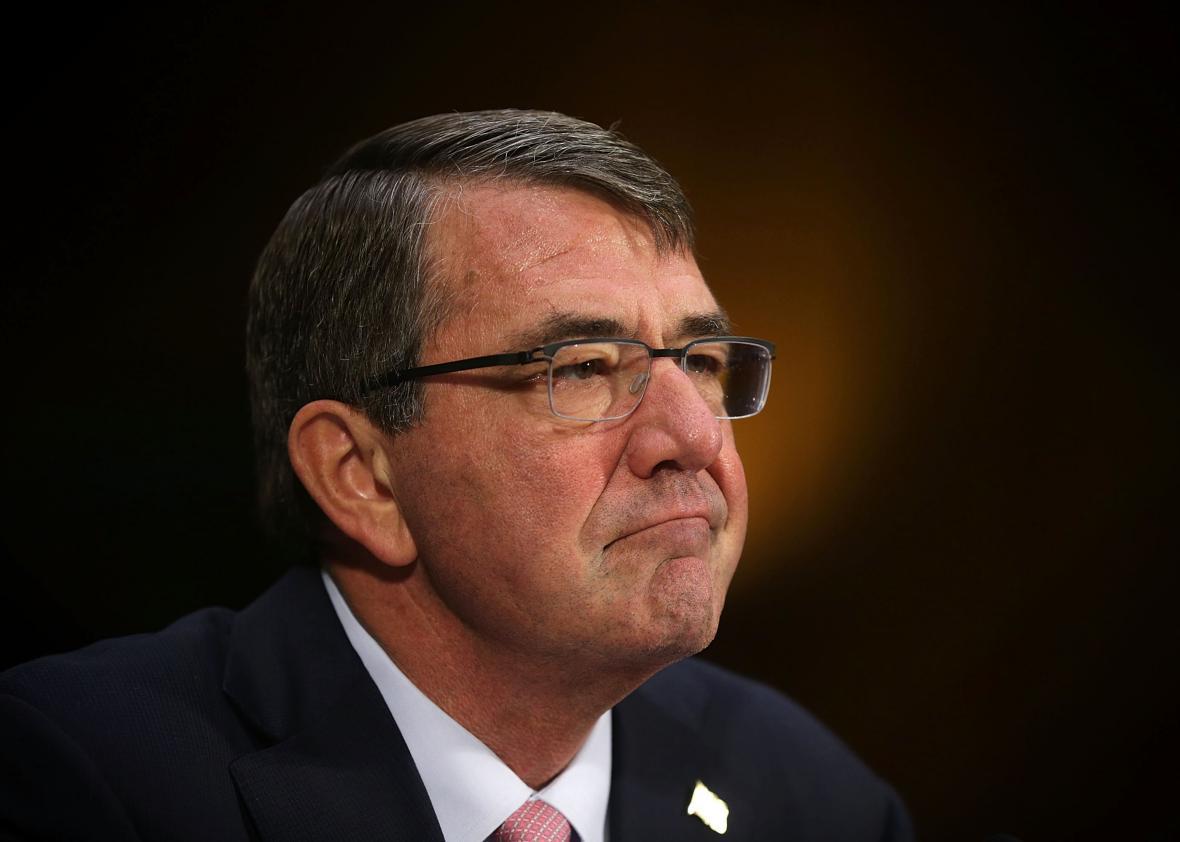The march toward equality for transgender individuals is having quite a week.
On Tuesday, two Democrats became the first transgender major-party contenders to win a primary election for federal office in U.S. history. And on Thursday, Secretary of Defense Ash Carter announced that the U.S. military is lifting its ban on openly transgender individuals joining and serving in the armed forces.
“This is the right thing to do for our people and for the force,” Carter said in announcing the policy change. “We’re talking about talented Americans who are serving with distinction or who want the opportunity to serve. We can’t allow barriers unrelated to a person’s qualifications prevent us from recruiting and retaining those who can best accomplish the mission.”
The policy change, which the Defense Department signaled was imminent last week, removes one of the last-remaining hurdles to military service based on sex. Carter’s announcement overruled high-level skeptics within the Pentagon who raised “concerns … about how to deal with the medical, housing and uniform issues for troops who are transitioning to the other sex,” as reported by USA Today.
Carter’s 16-month tenure as defense secretary has been studded with firsts, from the opening of all combat roles to women last December to the nomination of Erik K. Fanning, the first openly gay Army secretary, in September. (Fanning was confirmed by the Senate in May.) Carter had flirted with ending the ban on transgender service for nearly a year: A July 2015 press release called the transgender ban “outdated” and commissioned an internal working group as well as an assessment undertaken by the RAND Corp. to determine what steps would be necessary to lift it, according to the New York Times.
In his announcement on Thursday, Carter framed the move as a bid to gain “access to 100 percent” of the U.S. population in order to cultivate a stronger military for the nation.
With the ban on transgender service now gone the way of other discriminatory policies like Don’t Ask, Don’t Tell, the U.S. joins 18 other countries—among them Australia, New Zealand, Sweden, and Norway—that allow transgender troops to serve openly without negative repercussions.
A RAND Corp. study released Thursday estimates that lifting the ban will have a “minimal” impact on military readiness and budget. According to a press release that accompanied the study, between 1,320 and 6,630 transgender individuals currently comprise the active component of the U.S. military, a small fraction of the approximately 1.3 million total service members.
The transition will not be immediate, however. Carter’s statement indicated that the Defense Department will create a training handbook, medical protocols, and “guidance for changing a service member’s gender” by Oct. 1, per USA Today. “At this point, the services will be required to provide medically necessary care and treatment to transgender service members according to the medical protocol and guidance.”
In addition, as anonymous U.S. officials told the Associated Press:
people with gender dysphoria, a history of medical treatments associated with gender transition and those who have had reconstruction surgery may be disqualified as military recruits unless a medical provider certifies that they have been clinically stable in the preferred gender for 18 months, and are free of significant distress or impairment in social, occupational or other important areas. They also said transgender individuals receiving hormone therapy must have been stable on the medication for 18 months.
Mara Keisling, executive director of the National Center for Transgender Equality, praised the policy change in a statement emailed to Slate. “I commend the Pentagon’s action to replace an outdated and unscientific ban on transgender people in the military with sensible guidelines for transgender people to serve openly. Allowing anyone who is willing and able to serve to do so without lying about who they are is a sound policy that reflects American values.”
But she also cautioned against the 18-month waiting period for transgender individuals receiving hormone therapy. “We do have remaining concerns about an expected 18-month delay for individuals to join the military after a gender transition. This delay is substantially longer than individuals for comparable medical issues. We hope that this is a lingering piece of transgender exceptionalism that we expect will change as the military sees that it is simply an unnecessary barrier to getting the best talent.”
